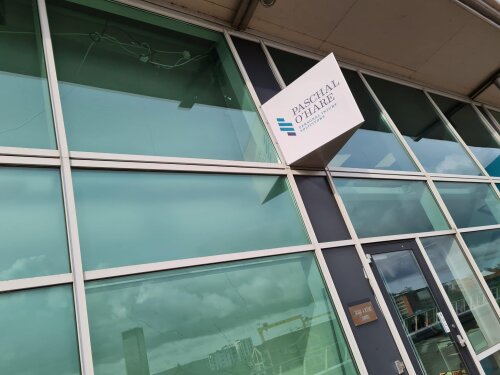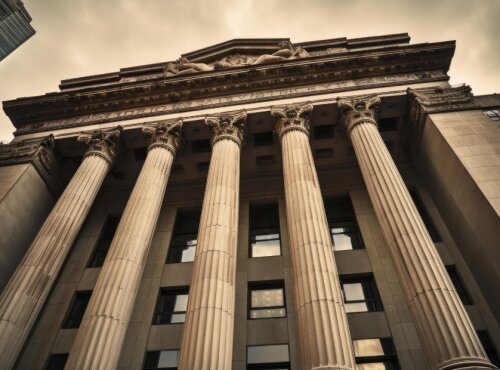Best Premises Liability Lawyers in Belfast
Share your needs with us, get contacted by law firms.
Free. Takes 2 min.
List of the best lawyers in Belfast, United Kingdom
About Premises Liability Law in Belfast, United Kingdom
Premises liability covers legal claims that arise when someone is injured, or their property is damaged, because of a hazard on someone else's land or premises. In Belfast - and Northern Ireland more broadly - the core issues are common to occupiers liability in other parts of the UK: who controlled or occupied the premises, what duty of care they owed to the injured person, whether that duty was breached, and whether that breach caused the injury or loss.
Examples include slips and trips in shops or on sidewalks, falls on uneven surfaces, injuries caused by poor maintenance, assaults that happened because the premises did not have reasonable security, dog attacks on private land, and accidents in communal blocks of flats. The person bringing the claim must normally prove that the occupier knew or ought to have known about the danger and failed to take reasonable steps to protect visitors or the public.
Why You May Need a Lawyer
Premises liability claims often appear straightforward but can involve complex factual and legal issues that benefit from specialist legal help. You may need a lawyer if any of the following apply:
- The injury is moderate or serious - requiring long-term care, time off work or ongoing treatment.
- The cause of the accident is disputed - for example, the occupier says they had no notice of the hazard or that the injured person behaved dangerously.
- Multiple parties may be responsible - such as landlords, managing agents, contractors or local authorities.
- Liability may be reduced because of contributory negligence - a lawyer can assess whether you share responsibility and by how much.
- The claim involves complex evidence - such as CCTV, maintenance records, building surveys, or expert medical or engineering reports.
- You need help with claim valuation, negotiating with insurers, or preparing for court if settlement cannot be reached.
Local Laws Overview
While the detailed statutory landscape for Northern Ireland is distinct from other parts of the UK, the practical principles that matter in Belfast premises liability cases are:
- Duty of care - Occupiers owe lawful visitors a duty to take reasonable care to ensure their safety while on the premises. The standard depends on the nature of the premises and the visitor - for example, an invitee, a licensee, a contractual visitor, or a service user.
- Unlawful visitors - There is a more limited duty to people who do not have lawful permission to be on the premises. The occupier must not intentionally or recklessly cause harm, and in some circumstances there is a duty to avoid foreseeable risks to trespassers.
- Reasonableness - Courts assess what steps a reasonable occupier would have taken to prevent the type of harm that occurred. This includes maintenance schedules, inspections, warnings, signage and appropriate security measures where relevant.
- Causation and loss - Claimants must show the occupier's breach caused their injury or damage, and they must quantify the loss - physical injury, medical costs, lost earnings, and sometimes care needs or future loss.
- Contributory negligence - If the injured person contributed to the accident by carelessness, compensation can be reduced proportionally.
- Time limits - Time limits for personal injury claims are strict. In most UK jurisdictions the usual limit is three years from the date of the accident or the date the injured person became aware that an injury was caused by negligence. There are exceptions for children and people who lack mental capacity, and time limits for fatal claims may differ. It is important to get legal advice quickly to avoid missing deadlines.
- Insurance - Many occupiers will be insured, and insurers usually handle claims. That means insurers and their lawyers commonly defend premises liability claims, so legal representation helps level the playing field.
Frequently Asked Questions
What is an occupier in a premises liability claim?
An occupier is a person or entity that has control of premises - this can be an owner, tenant, landlord, manager or someone who exercises control over how the premises are kept and used. Liability depends on who had responsibility for the area where the accident occurred.
Do I have to be a visitor to bring a claim?
No. Lawful visitors have the strongest protection, but in some situations people without permission may have limited protection if an occupier knew of a danger that could cause serious harm and did nothing to prevent it. The level of duty varies with the circumstances.
What types of accidents are covered by premises liability?
Common examples are slips and trips on uneven floors or wet surfaces, falls down stairs, injuries from falling objects, dog attacks on private property, electrocution from exposed wiring, injuries caused by defective lifts, and harm resulting from inadequate security such as assaults in poorly lit car parks.
How do I prove the occupier was at fault?
You must show the occupier owed you a duty of care, that they breached that duty by failing to take reasonable steps, and that the breach caused your injury and loss. Evidence can include photos of the hazard, CCTV, witness statements, maintenance logs, expert reports and medical records.
What evidence should I collect at the scene?
Take photographs from different angles, note the time and conditions, record details of any signage or obstructions, write down witness names and contact details, keep clothing or shoes as they were, and report the incident to the occupier or manager so there is an official record.
How long will a claim take to resolve?
Timescales vary. Minor claims may settle in a few months. Claims that involve disputes over liability, require expert reports or involve serious injury often take longer - sometimes a year or more. If the matter goes to court, it will take longer and be more costly.
Can I claim if I slipped on a public pavement in Belfast?
Possibly. Responsibility depends on who is responsible for maintaining that pavement - for example the local council, a utility company or a private landowner. Establishing who had control and notice of the defect is key. Prompt reporting and legal advice help identify the responsible party.
What if I was partly to blame for my injury?
Your compensation may be reduced under the principle of contributory negligence. A court or insurer will estimate the degree to which your own actions contributed to the harm and reduce the award accordingly. A lawyer can argue for a lower reduction based on the facts.
Will my case go to court?
Most premises liability claims settle with the occupier or their insurer before trial. Lawyers will usually try negotiation, mediation or other forms of alternative dispute resolution first. Court proceedings are a last resort when settlement cannot be reached.
How much compensation could I receive?
Compensation depends on the nature and severity of the injury, recovery prospects, medical expenses, lost earnings, and any ongoing care needs. Non-pecuniary losses such as pain and suffering are also considered. A solicitor experienced in premises claims can provide a more accurate estimate after reviewing your circumstances.
Additional Resources
When dealing with premises liability issues in Belfast, the following local bodies and organisations can be useful sources of information or assistance:
- Belfast City Council - for reporting hazardous public spaces or damaged pavements and for information about local landlord responsibilities.
- Health and Safety Executive for Northern Ireland - for workplace or public safety concerns and reporting dangerous conditions in workplaces.
- Citizens Advice Northern Ireland - for initial information about rights, obligations and claim procedures.
- Law Society of Northern Ireland - for finding regulated solicitors who specialise in personal injury and premises liability.
- Northern Ireland Courts and Tribunals Service - for information about court procedures if litigation becomes necessary.
- Local GP or hospital - for immediate medical assessment and for creating written medical records that will support a claim.
Next Steps
If you think you have a premises liability claim, follow these practical steps to protect your position and prepare for legal advice:
- Seek immediate medical attention - your health is the priority and medical records are key evidence.
- Preserve evidence - take clear photos of the scene, the hazard, your injuries and any relevant signage; keep clothing and footwear; gather witness names and contact information.
- Report the incident - inform the occupier, manager or owner as soon as possible and request an incident report or record the name and position of the person you reported it to.
- Keep records - note dates and times, names, conversations with insurers or the occupier, expenses you incur and any time off work.
- Contact a specialist solicitor - get early legal advice about liability, time limits and the strength of your case. Many firms offer an initial consultation and operate on a no-win-no-fee basis in personal injury matters - confirm costs and funding options up front.
- Report hazards to the relevant authority - if the incident involves a public safety issue, report it to the local council or the Health and Safety Executive for Northern Ireland as appropriate.
- Act within time limits - do not delay seeking legal advice. Missing statutory deadlines can prevent you from bringing a claim.
Premises liability claims can be technical and fact-sensitive. A solicitor with local experience in Belfast and Northern Ireland law can advise on the likely outcome, gather the necessary evidence, and represent your interests in negotiations or court if needed.
Lawzana helps you find the best lawyers and law firms in Belfast through a curated and pre-screened list of qualified legal professionals. Our platform offers rankings and detailed profiles of attorneys and law firms, allowing you to compare based on practice areas, including Premises Liability, experience, and client feedback.
Each profile includes a description of the firm's areas of practice, client reviews, team members and partners, year of establishment, spoken languages, office locations, contact information, social media presence, and any published articles or resources. Most firms on our platform speak English and are experienced in both local and international legal matters.
Get a quote from top-rated law firms in Belfast, United Kingdom — quickly, securely, and without unnecessary hassle.
Disclaimer:
The information provided on this page is for general informational purposes only and does not constitute legal advice. While we strive to ensure the accuracy and relevance of the content, legal information may change over time, and interpretations of the law can vary. You should always consult with a qualified legal professional for advice specific to your situation.
We disclaim all liability for actions taken or not taken based on the content of this page. If you believe any information is incorrect or outdated, please contact us, and we will review and update it where appropriate.














